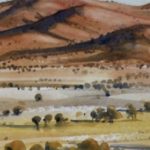
20 Feb CFP: Life Writing in the Anthropocene
Call for Papers: A special issue of a/b: Auto/Biography Studies www.tandfonline.com/raut
Guest Editors: Jessica White & Gillian Whitlock
The University of Queensland
We have, arguably, entered the age of the Anthropocene, a time when our environment has been substantially shaped by humans, rather than vice versa. It is an age marked by environmental decline and extinction: the last forty years have witnessed the irrevocable disappearance of half the world’s vertebrates; sixty percent of the world’s wild primates are facing extinction; and the geographic range of Australia’s iconic gum trees is threatened to shrink by half within the next sixty years. Given these statistics, it is timely to consider the intertwining of our selves with our ecology, particularly given the historically anthropocentric focus on auto/biography.
a/b: Auto/Biography Studies seeks original articles for a special issue on “Life Writing in the Anthropocene” to be published as volume 35.1. How can autobiography, a form which has traditionally dwelled upon representations of the human self, extend to representations of non-human lives? How do we write about the impact which our life has upon other lives? Can we describe the non-human without anthropomorphising it? What is the role of literature in illuminating the non-human and its importance to our selves? How can we articulate relationships with non-human lives in ways that underscore their significance?
The need to address such questions is becoming increasingly urgent in this new epoch. With this in mind, we welcome contemplation of the representation and imagining of non-human and human selves in the Anthropocene. Articles might canvas the following:
- representations of ecosystems and identity formation
- the prevalence of narratives about grief and environment or, more largely, the role of emotion in our literary entwinement with nature
- the imagination and articulation of extinct lives
- the meaningful representation of lives in the span of deep time, given the insignificance of human time against this scale
- the impact of colonisation upon ecosystems, particularly in consideration of constitution of Indigenous selves and communities
- the possibilities of digital enmeshments with environment
- distinctions between communal and singular selves
- issues of style or genre, such as ecobiography or eco-memoir
- lives in urban ecologies
- depictions of non-human lives and/or ecosystems
- Indigenous and non-Indigenous representations of landscapes and country
- the composition of posthuman selves and their environments
This issue is an exciting opportunity to bring non-human lives into conversations about life writing. We welcome essays from a wide range of disciplines, including the humanities, social sciences, sciences and creative arts. Cross-fertilisation of disciplines is also warmly welcomed. Essays should be 6,000-8,000 words including citations. Citations should be in MLA 8th edition. Please include a coversheet with your name, contact details, and a brief biographical statement. Authors must also include a short abstract and two to four keywords with their submissions. Images with captions should be submitted in a separate file as 300 dpi (or higher) tif files. It is the author’s responsibility to secure any necessary copyright permissions and essays may not progress into the publication stage without written proof of right to reprint. All essays submitted for the special issue, but not selected, will be considered general submissions.
Submissions are due 1st September 2018. Please email submissions to the guest editors: Jessica White jessica.white@uq.edu.au and Gillian Whitlock g.whitlock@uq.edu.au. Inquiries welcome.
Biographical Statements
Dr Jessica White is the author of A Curious Intimacy (Penguin, 2007) and Entitlement (Penguin, 2012). Her short fiction, essays and poetry have appeared widely in literary journals and she is the recipient of funding, residencies and numerous awards. Jessica is currently an Australia Research Council DECRA postdoctoral fellow at The University of Queensland, where she is writing an ecobiography of nineteenth-century Australian botanist Georgiana Molloy.
Professor Gillian Whitlock is a Professor of English in the School of Communication and Arts at The University of Queensland and a Fellow of the Academy of the Humanities. She is the author of a series of monographs on life writing, including Postcolonial Life Narratives. Testimonial Transactions (OUP, 2015) and Soft Weapons: Autobiography in Transit (Chicago UP, 2007), as well as numerous chapters and articles. Her current project focusses on asylum seeker narratives from the Pacific.
Image copyright: James White




No Comments